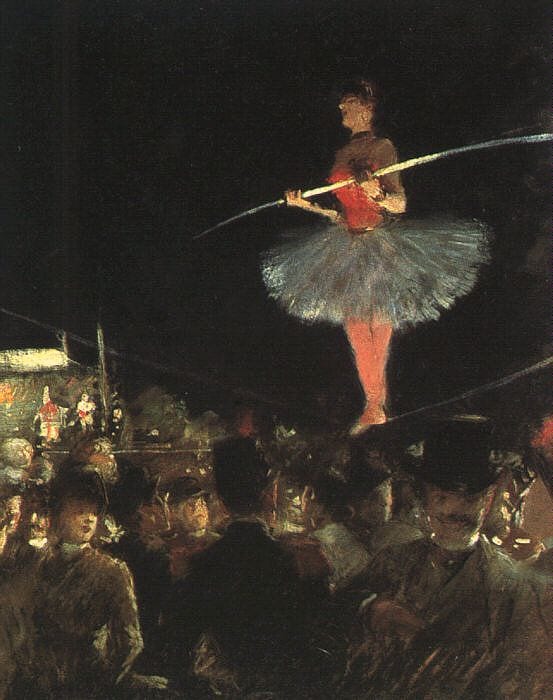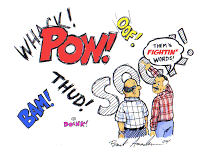 |
| Forain – The Tightrope Walker |
Monday morning I went for a walk with two friends who are mothers. As it often does, talk fairly quickly turned to our teenage daughters and the triumphs and challenges we are facing right now. We took turns talking about and listening to each others’ unique perspectives and it felt good to be in the company of others whose values are similar and who may have fresh ideas for looking at sticky situations.
I was struck by how incredibly important parents are to children as they go through the early teen years. Despite the fact that Eve is more interested in spending hours alone in her room (well, not digitally ‘alone,’) and she maintains that she has her own ideas about everything and my opinions aren’t always welcome, I know she is still looking to Bubba and me for a baseline. She is in the throes of determining her own personality, her own values, and finding her unique path for the near future, and I have to respect that, but her frame of reference is us. I can see her picking and choosing which pieces of me to absorb or eschew, shrinking away into her own space and crafting her world view from the bits and pieces she has decided are important. She is watching the way that Bubba and I move through the world, how we react to lack of control, how we prioritize, how we act in community with others (or not). We are the starting point from which she jumps and our role is so important in giving her something to either emulate or discard, something to react to.
One of my girlfriends was lamenting the fact that her teenager has such a negative view of her own life. “She has clothes, food, a roof over her head. She doesn’t have parents who scream at each other all the time or kick her out of the house. How hard could her life be?” We all laughed in that way you laugh when you know you’re all sitting in the same stew pot together.
We kicked around the notion that, in order to differentiate themselves and individuate (their most important developmental ‘job’ right now as teenagers), they have to craft some kind of backstory that justifies defiance, a pushing away. They have to have something to push off of in order to propel themselves out into the world with less fear and trepidation. It is so much easier to push off when you’re angry or defiant than it is when you’re reluctant to leave.





